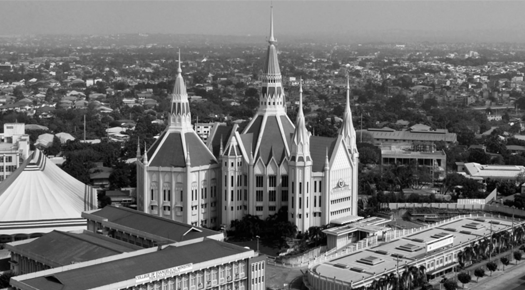
Allegations of abductions and gross misuse of funds within a politically powerful but secretive religious sect in the Philippines has caused the Department of Justice to launch an investigation that would help expose the church’s control of its members. Leila de Lima, secretary of the justice department, said even though the government cannot directly interfere in the squabble taking place within Iglesia ni Cristo, also known as Church of Christ, the National Bureau of Investigation would look into the alleged abductions, as those happen to violate the country’s laws.
The ongoing feud inside the closely-knit religious sect surfaced last month after the mother and brother of Eduardo Manalo, who heads the church, were expelled for seeking help from other church members via a YouTube message that also claimed that the duo’s life had been put in danger ever since a number of ministers went missing.
Isaias Samson, former editor in chief of Iglesia ni Cristo’s newspaper, told the media that his wife and son too had been held under house arrest for a week by armed guardsmen who received orders from the church. He also clarified that the two eventually managed to escape unharmed.
“It is very difficult to talk about things that we know will damage the Iglesia because of the actions of some people,” he said, adding that about 10 ministers have been abducted.
Herminio Coloma, spokesperson for President Benigno Aquino III, responded to Samson’s concerns; saying police officers from the country’s anti-kidnapping group had been deployed to assess the situation, ensure everyone is safe, and monitor the law and order situation in the Philippines.
According to sources, political candidates in the country seek help from the powerful sect, since its members happen to cast their votes in a bloc. While there are as many as 2.3 million individuals in the Philippines associated with the 101-year-old sect, the number of church members who eventually cast their votes during elections is unknown. The organization has followers in others countries as well.
While Roman Catholicism happens to be the predominant religion across Southeast Asia, Felix Manalo, founder of Iglesia ni Cristo, broke away from the root religion to form his own church. He is also considered a prophet by those that follow him. After Felix Manalo’s death in 1963, his son Erano Manalo took over the post until his demise in 2009, when yet another Manalo son, Eduardo, assumed office as ‘executive minister’. Even though the church believes that Christ was the Son of God, it does not believe in the Holy Trinity like Roman Catholics do.
Speaking to the media, Bienvenido Santiago, general evangelist of Iglesia ni Cristo, said that the mother and brother in question, namely Cristina and Felix Nathaniel, had been expelled along with another brother and sister of Eduardo Manalo on grounds of trying to create divisions inside the church. Additionally, Santiago denied all allegations of abductions, saying the church is not a ‘family corporation’.
“This is a religion that follows God’s teachings written in the Bible,” Santiago said.
He also accused both mother and brother of wrongfully trying to seek positions in the church’s hierarchy.
In response to Santiago’s accusations, Nathaniel told the media that several anomalies had taken place within the church under its current advisory council.
“We have been threatened by the Council ... because they say we are opposing the leader,” he said. “We love our brother, but the problem is those around him… The church’s funds are being used up in all sorts of projects which we don’t even need, one of which is the Philippine Arena.”
Nathaniel was apparently referring to a 55,000-seat arena, which is believed to be the largest indoor stadium in the world.
Iglesia ni Cristo spokesperson, Edwil Zabala, opposed Nathaniel’s claim that church funds have been misused. He clarified that as many as 873 houses of worship have been built in the Philippines as well as on foreign shores since 2011, when the Philippine Arena was first proposed.
Photo Credits: Iglesia ni Cristo
